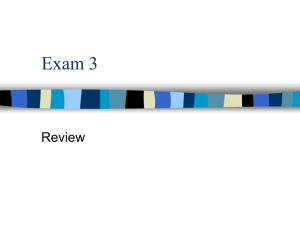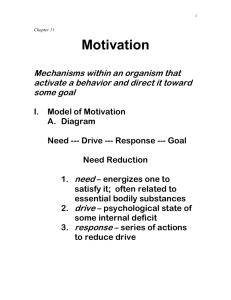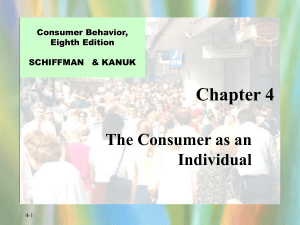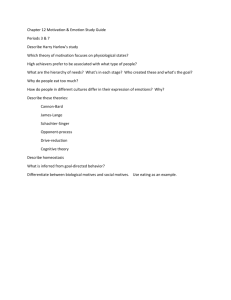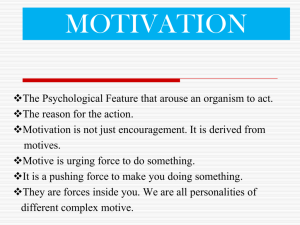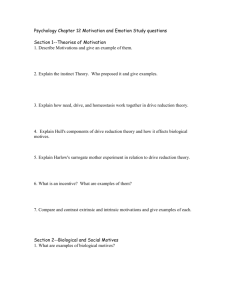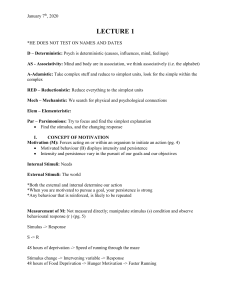a trio of needs
advertisement
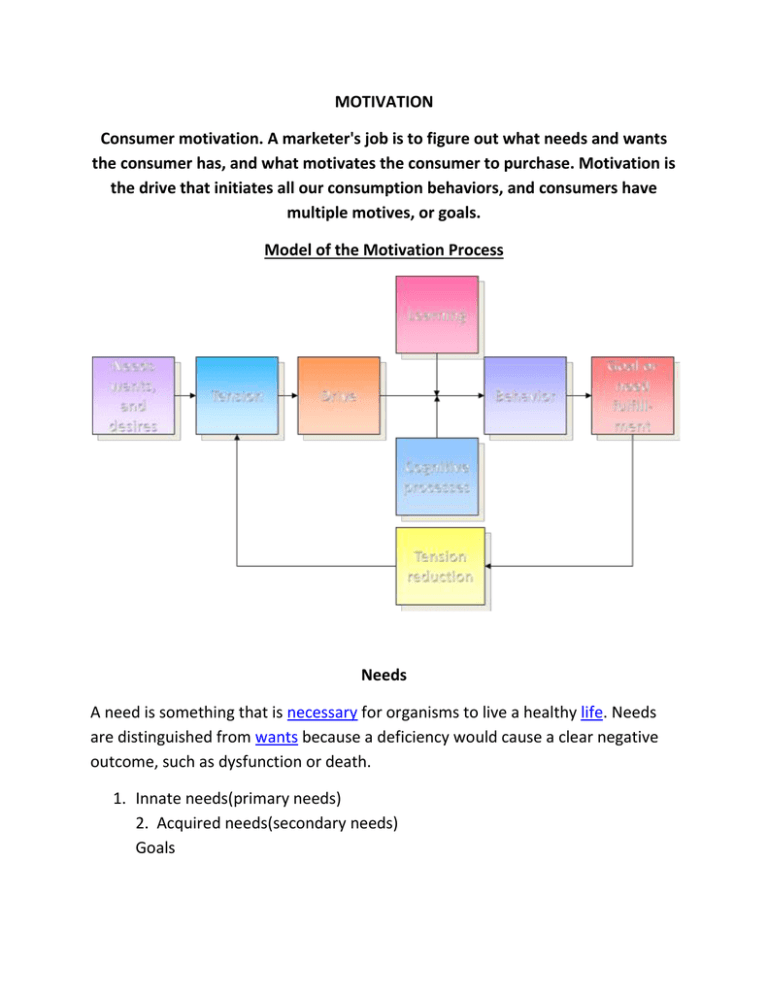
MOTIVATION Consumer motivation. A marketer's job is to figure out what needs and wants the consumer has, and what motivates the consumer to purchase. Motivation is the drive that initiates all our consumption behaviors, and consumers have multiple motives, or goals. Model of the Motivation Process Needs A need is something that is necessary for organisms to live a healthy life. Needs are distinguished from wants because a deficiency would cause a clear negative outcome, such as dysfunction or death. 1. Innate needs(primary needs) 2. Acquired needs(secondary needs) Goals Generic Goals the general categories of goals that consumers see as a way to fulfill their needs e.g., “I want to get a graduate degree.” Product-Specific Goals the specifically branded products or services that consumers select as their goals e.g., “I want to get an MBA in Marketing from Kellogg School of Management.” The Selection of Goals • The goals selected by an individual depend on their: – Personal experiences – Physical capacity – Prevailing cultural norms and values – Goal’s accessibility in the physical and social environment Rational Versus Emotional Motives • Rationality implies that consumers select goals based on totally objective criteria such as size, weight, price, or miles per gallon • Emotional motives imply the selection of goals according to personal or subjective criteria THE DYNAMICS OF MOTIVATION NEEDS ARE NEVER FULLY SATISFIED Multiplicity of needs and variation of goals Arousal of motives Frustration: Failure to achieve a goal may result in frustration. Some adapt; others adopt defense mechanisms to protect their ego Defense Mechanism Methods by which people mentally redefine frustrating situations to protect their self-images and their self-esteem. Defense Mechanisms • Aggression • Rationalization • Regression • Withdrawal • Projection • Autism • Identification • Repression AROUSAL OF MOTIVES • Physiological arousal • Emotional arousal • Cognitive arousal • Environmental arousal Philosophies Concerned With Arousal of Motives • Behaviorist School – Behavior is response to stimulus – Elements of conscious thoughts are to be ignored Consumer does not act, but reacts Cognitive School • • Behavior is directed at goal achievement Need to consider needs, attitudes, beliefs, etc. in understanding consumer behavior TYPES AND SYSTEMS OF NEED Hierarchy of needs An evaluation of the need hierarchy and marketing applications A trio of needs HIERARCHY OF NEEDS Murray’s List of Psychogenic Needs Sado-Masochistic Needs : Aggression, Abasement Needs Concerned with Affection between People: Affiliation, Rejection, Nurturance, Succorance, Play Needs Concerned with Social Intercourse: Cognizance, Exposition A TRIO OF NEEDS 1. Power individual’s desire to control environment 1. Affiliation need for friendship, acceptance, and belonging 1. Achievement need for personal accomplishment closely related to egoistic and self-actualization needs THE MEASUREMENT OF MOTIVES Motivational research Evaluation of motivational research Motivational Research Qualitative research designed to uncover consumers’ subconscious or hidden motivations. Consumers are not always aware of, or may not wish to recognize, the basic reasons underlying their actions. CONCLUSION Motivation is a driving force that impel them to action, the individuals subconscious drive to reduce the need – induced, tensions, result s in behavior that he or she anticipates will satisfy needs and thus brings the more comfortable internal state
